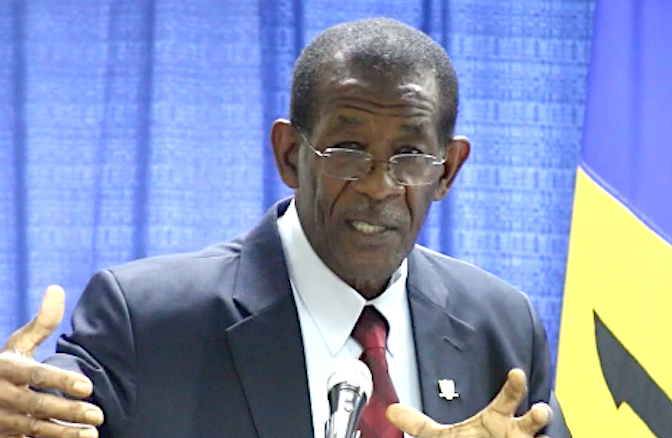By Emmanuel Joseph
The Barbados Sustainable Energy Cooperative Society Ltd (Co-op Energy) has proposed the creation of a National Energy Authority (NEA) as it “strenuously” objects to the lone power company being granted licences to install battery storage facilities.
President of Co-op Energy, Retired Lieutenant Colonel Trevor Browne stated his organisation’s position in a letter to Minister of Energy and Business Senator Lisa Cummins, challenging the recent application by the Barbados Light and Power Company (BLPC).
He contended that there is no way BLPC should get the licences in the current circumstances.
In his objection, Browne recalled that when Emera Inc of Canada acquired controlling interests of BLPC shares in 2011, it “proceeded to force all local shareholders to dispose of their investments in that utility”. Since then, he added, the company has been exploited as a profit centre for Emera, paying themselves a total of $538 million in dividends between the last rate review in 2010 and 2021.
Browne argued that this represents 21 per cent of BLPC’s total revenues for the period and that for the same period, less than $100 million (four per cent of total revenue) was reinvested in the company to fund urgently needed upgrades, reinvestment and upkeep.
He noted that prior to Emera gaining control, BLPC typically reinvested more than 70 per cent of its net income to meet customer requirements and expectations.
Browne reminded Minister Cummins that the new renewable energy thrust by Barbados now means that storage will be changed from fossil fuel storage to electric energy storage, and fossil fuel importation will be replaced by local energy harvesting via solar, wind, and biofuels.
“However, these areas of raw energy sourcing and storage continue to remain completely outside of BLPC’s franchise and remit. In fact, a simple legal review will quickly demonstrate that the battery storage facility already built by that company in St Lucy has been illegally constructed, and currently operates without the required licence,” the Co-op Energy leader claimed.
“There is, therefore, no basis for BLPC to automatically assume any rights to construct and run energy storage facilities. Any entity, including Co-op Energy, can purchase the knowledge and expertise needed to design, build and operate these energy storage facilities – just as BLPC will have to do. Meanwhile, however, [Barbados National Oil Company Limited] BNOCL currently enjoys that franchise,” Browne said.
He maintained that the only basis on which such facilities can be legally implemented by BLPC is where these are used exclusively for system stability and load management purposes, and where no tariff rates can be applied by the utility on such equipment for ‘energy storage’ services.
“However, the main reason that these licences should not be awarded to BLPC/Emera is that there is now a very strong local appetite for investment in the energy sector. Government’s stated policy on the rollout of the new energy framework specifies that there must be ‘meaningful local ownership and participation’ in the sector,” the retired Lt Col argued.
Browne contended that if BLPC is seeking to be a major player in the new energy sector, it must conform to the policy and Barbadians must have the opportunity to buy BLPC shares once again, in keeping with the Barbados National Energy Policy (BNEP) guidelines.
“Alternatively, and preferably, the government should create a new National Energy Authority (NEA), through which all licences will be issued, and this new entity would then hold the new franchise to control BLPC,” he suggested, proposing that the entity should comprise all key stakeholders including Emera, BNOC, government, and the public.
He suggested that Emera Caribbean Ltd should hold 40 per cent ($100 million); and BNOCL, Energy Cooperative (formal Barbados public participation), and the open market should each get 20 per cent ($50 million).
“The NEA then takes responsibility for developing a specific National Energy Plan and having it adopted and approved. NEA then undertakes the leadership and implementation of the BNEP. Investors will then have multiple opportunities to invest in NEA with reasonable but guaranteed returns on their investments, as is intended in the present legislation.”
Browne said his organisation is therefore calling on the relevant national agencies to take control of the future of the energy sector and to ensure the success of the BNEP.
emmanueljoseph@barbadostoday.bb




